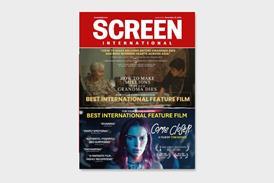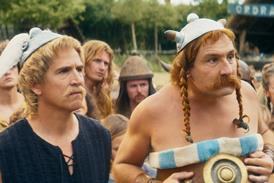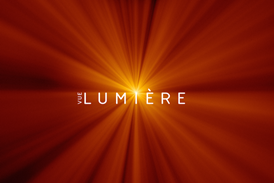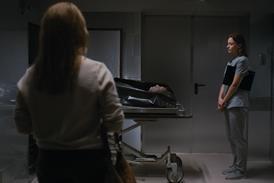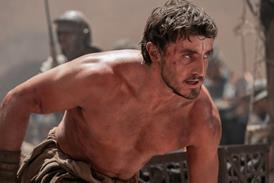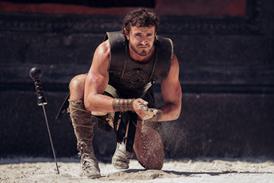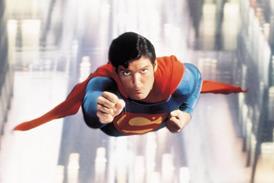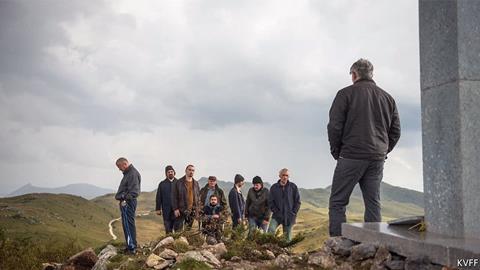
Dir. Alen Drljević. Bosnia & Herzegovina/Slovenia/Croatia/Germany. 2017. 98 mins
In Men Don’t Cry, an empty Serbian hotel becomes one more battleground in the ceaseless Yugoslav Wars. Nearly 20 years after the official end of hostilities, many former combatants have still never truly escaped, a fact that director Alen Drljević’s feature debut presses home with both subtlety and force, working as a close-quarters drama that plays something like 12 Angry Men if all the men were guilty.
The film relies on its strong roster of bold-faced talent to breathe world-weary life into their roles - and they all come through
Warm reviews and subsequent festival play should spur on additional interest for this Karlovy Vary premiere. The cast of local heavy-hitters should help in Balkan territories, while the film’s Karlovy Vary haul – it won the Special Jury Prize and the Europa Cinema Award – could also inspire niche distributors from farther afield.
Truly an ensemble piece, the film never centres on any one character, instead letting the very tapestry of hard men and tough lives become its central narrative. Bosnian, Croat, and Serb alike, this motely group of middle-aged veterans has assembled at an off-season ski lodge high in the Serbian mountains. They are there for a weeklong reconciliation summit (paid, of course) that’s supposed to help them deal with their violent past and forge a better future, but hard-wired tensions and the scars of war run deep.
Working from a script he co-wrote with Zoran Solomun, Drljević uses his limited setting to set a broad stage, providing deft characterizations and offering a number of his leading men powerful moments to play. Just north of 90 minutes, the film is nothing if not economical, relying on its strong roster of bold-faced talent to breathe world-weary life into their roles - and they all come through.
The Bosnians are represented by Jasmin (Boris Ler), a young man who lost the use of his legs his first hour in combat and has been living with that anger ever since, and Merim (Emir Hadžihafizbegović), hardly the lone Muslim of the group, but the only one who practices. They bump up against brooding Croat Valentin (Leon Lučev) and Serb Miki (Boris Isaković), whose third act revelations force both the characters and the audience to make a moral decision about his wartime conduct, among others.
Much of the action is divided between the actual reconciliation sessions, which resemble something between group therapy and a theatre workshop, and the afterhours hours drinking afforded by the illicit bottles of hooch Miki snags off the hotel manager. The film grants that stoic boozing can often be equally helpful, and that the seminar’s therapeutic breakthroughs can sometimes have disastrous effects. It also recognizes that post-war PTSD can be nearly impossible to disentangle from the regional traumas that produced the very conflict; for many of the men present, their only salvation will come in stepping back and making way for future generations untainted by the rot of war.
Cinematographer Erol Zubčević’s crisp lensing and hand-held camera keeps the actors close in the frame. The uneasy aesthetic brings out the best in the actors, swerving and reframing in lock-step with their performances, wringing maximum tension — and sometimes, sometimes catharsis – from each tough interaction.
Production companies: Deblokada, Iridium Film, Produkcija Živa, Manderley Films, This and That, CinePlanet
International sales: Picture Tree International, yuan@picturetree-international.com
Producer: Damir Ibrahimović, Jasmila Žbanić
Screenplay: Alen Drljević, Zoran Solomun
Cinematography: Erol Zubčević
Editor: Vladimir Gojun
Art director: Mirna Ler
Cast: Boris Isaković, Leon Lučev, Emir Hadžihafizbegović, Sebastian Cavazza, Ermin Bravo, Boris Ler, Ivo Gregurević, Izudin Bajrović

